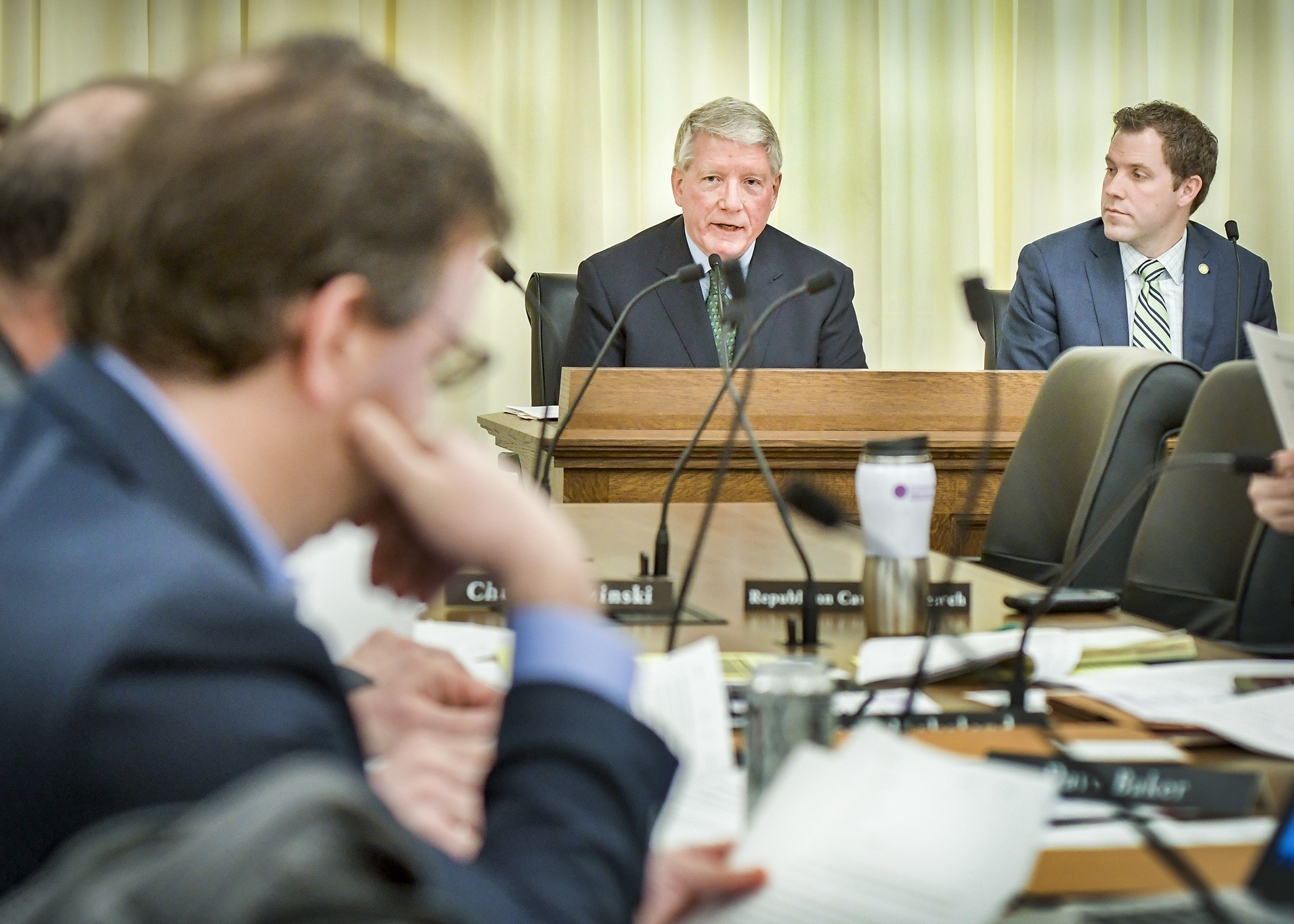Clean Energy First Act has its first act

Whatever you do, make it renewable.
That’s the advice Gov. Tim Walz offers to those proposing power projects in Minnesota now and in the future. And that directive is laid out in the “Clean Energy First Act,” a bill that attracted a standing-room-only crowd and over two hours of public testimony before the House Energy and Climate Finance and Policy Division on Tuesday.
Sponsored by Rep. Jamie Long (DFL-Mpls), HF1956 was laid over for possible inclusion in the omnibus energy bill, but not before stimulating a lot of debate in a hearing that began in the morning and concluded in the late afternoon after a recess.
It sets out the goals that Walz laid out last week in what he called the “One Minnesota Path to Clean Energy,” the central one being that all electric utilities operating in the state be required to use only carbon-free energy sources by 2050. While each utility is allowed to chart its own route to that goal, the bill would set the mandate in state law.
The policy that gives the bill its title is the requirement that – whenever a utility proposes to replace or build a new power generation source – energy efficiency and renewable energy sources such as solar and wind be prioritized over fossil fuels. A caveat is that fossil fuels should only be used if necessary to ensure reliable, affordable electricity.
The bill’s third key element is an act within the act, the Conservation Improvement Program Modernization Act of 2019.
It would expand that program to help households and businesses save on their utility bills with more efficient energy use, especially targeting energy-saving assistance for low-income households. The proposal would also revise the state’s energy efficiency resource standard for investor-owned electric utilities.
In introducing the bill, Long underlined testimony heard from scientists at earlier hearings that Minnesota stands to be the state more affected by climate change than any other. He emphasized the reduction in greenhouse gas emissions that the bill could bring about, and that wind and solar energy are becoming increasingly affordable.
As Long’s bill is, at root, the governor’s proposal, he left it to Commerce Commissioner Steve Kelley to answer the committee’s questions about its goals, most of which came from the Republican side of the room. For example: Does the bill offer new guidance on nuclear power plants? It does not, Kelley said, other than replacing them with renewable sources when they’re decommissioned.
Kelley emphasized that the bill doesn’t “ban” coal or natural gas, but that a utility has to “demonstrate that the only way to address a gap in the resources would be through other means, including, potentially, natural gas.”
Republicans planned to introduce 20 amendments, but the division’s Republican lead, Rep. Chris Swedzinski (R-Ghent), withdrew them when the division chair, Rep. Jean Wagenius (DFL-Mpls), ruled they would have to be introduced before hearing public testimony. The only amendment introduced, a proposal to change the clean energy goal to 2031 instead of 2050, was unanimously voted down, including by the legislator who proposed it.
Among the 34 people who offered public testimony, opinions ran about 60-40 in favor of the bill. The chief objections came from those representing utilities (although some spoke in favor), the sticking points being stability and reliability, many questioning whether a mandate is necessary to enforce a direction in which utilities are already headed.
Rep. Dave Baker (R-Willmar) suggested tabling the bill. “This is an omnibus rethink-the-world-as-we-know-it-in-Minnesota bill. I also want to get to a carbon-free world, but I want to get there without potentially doubling or tripling the rates that we might pay.”
The bill’s companion, SF1956, sponsored by Sen. Nick Frentz (DFL-North Mankato), awaits action by the Senate Energy and Utilities Finance and Policy Committee.
Related Articles
Search Session Daily
Advanced Search OptionsPriority Dailies
Legislative leaders set 2026 committee deadlines
By Lisa Kaczke Legislative leaders on Tuesday officially set the timeline for getting bills through the committee process during the upcoming 2026 session.
Here are the three deadlines for...
Legislative leaders on Tuesday officially set the timeline for getting bills through the committee process during the upcoming 2026 session.
Here are the three deadlines for...
Latest budget forecast projects nearly $2.5 billion surplus, but red ink down the road
By Mike Cook Three weeks before Christmas, state budget officials provided some merriment to Minnesotans. However, Grinch-like transformations lurk.
Released Thursday, the November ...
Three weeks before Christmas, state budget officials provided some merriment to Minnesotans. However, Grinch-like transformations lurk.
Released Thursday, the November ...